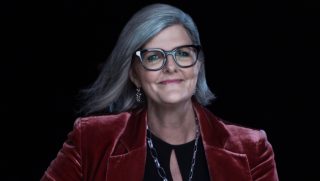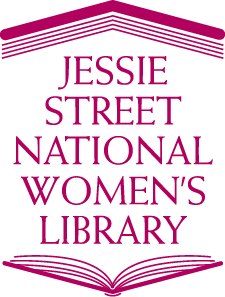Annual Luncheon Speakers
over the years
Annual Luncheon Speaker
 Speaker: Professor Megan Davis Pro-Vice Chancellor Society (PVCS)
Speaker: Professor Megan Davis Pro-Vice Chancellor Society (PVCS)
Date and place: Monday 11 September, 11.45 am for 12.20 pm, NSW Parliament
Professor Megan Davis is a Cobble Cobble woman of the Barunggam Nation. She is a renowned constitutional lawyer and public law expert, focusing on advocacy for Aboriginal and Torres Strait Islander peoples.
Megan Davis has been working on the Voice for 12 years. With Noel Pearson and Pat Anderson, she was a driving force for the 2017 gathering at Uluru, resulting in the landmark Statement from the Heart, which received the 2021-2022 Sydney Peace Prize. Rallying support for Australians to unite behind the Voice is now her mission.
We are honoured to have her take the time from progressing the Voice referendum to address our Luncheon.
Don’t miss out on this exciting opportunity to hear Professor Megan Davis and to support the Annual Fundraising Luncheon for Jessie Street National Women’s Library.
Attached is the Annual Luncheon booking form 2023

ANNUAL LUNCHEON 12 SEPTEMBER 2022
Speaker: Sam Mostyn AO
Title: What, and who, do we care about in Australia in 2022?
Date and place: Monday 12September, 11.45 am for 12.20 pm, NSW Parliament
Sam is an advocate for women in the areas of domestic violence and First Nations women. She says that when a significant proportion of women are on boards, issues such as domestic violence and sexual harassment are brought to attention.
Sam Mostyn brings her considerable expertise and passion to the diverse governance roles she has undertaken in fields ranging from sustainability and climate change to women’s AFL. In 2018, she was awarded an Honorary Doctorate of Laws from the ANU in recognition of her work as a pioneer of gender inclusion and equity, and leadership in sustainability and climate change.
Bookings close 26 August and there are no refunds after this date.
Attached is the Annual Luncheon booking form 2022
JSNWL Annual Luncheon 2021 goes online

Exciting news!
Professor Lesley Hughes, our guest speaker for the 2021 Annual Luncheon, will be presenting her address as a webinar via Zoom on MONDAY 6 SEPTEMBER at 1.00PM.
Professor Hughes, distinguished Professor of Biology and Pro Vice-Chancellor (Research Integrity and Development) at Macquarie University, has been researching the impacts of climate change on species and ecosystems for more than 20 years.
The Luncheon address will focus on the contributions of ten pioneering women, from the discovery by Eunice Foote of the impact of greenhouse gases on climate, to Greta Thunberg, and how we can keep the planet safe.
We look forward to hearing Professor Hughes speak on this topic, so critical to our future and for the generations to come. Our May Newsletter features her profile. https://www.nationalwomenslibrary.org.au/participate/newsletters/
The Board of the Library and the Annual Luncheon committee are most grateful to Professor Hughes for her acceptance of our request for this alternative to our usual Luncheon.
To request the link and be part of this special event please email the Library

Annual Luncheon 16 September
Speaker: Deborah Cheetham AO
Title: Woven Song, the journey from knowing to understanding
Date and place: Monday 16 September, 11.45 am for 12.20 pm, NSW Parliament House
Deborah Cheetham AO, Yorta Yorta woman, opera singer, composer and educator has been a leader and pioneer in the Australian arts landscape for more than 25 years.
In 2009, Deborah established Short Black Opera as a national not-for-profit opera company devoted to the development of Indigenous singers. In 2010, she produced the premiere of her first opera, Pecan Summer. This landmark work was Australia’s first Indigenous opera and has been a vehicle for the development of a new generation of Indigenous opera singers.
Deborah’s commissions for major Australian ensembles include works for the Adelaide Symphony Orchestra, Melbourne Symphony Orchestra, Australia String Quartet, West Australian Symphony Orchestra String Quartet, Rubiks Collective, Plexus Ensemble, Flinders Quartet and the Goldner Quartet.
Bookings close on 30 August and there are no refunds after this date.
Attached is the Annual Luncheon booking form 2019

Deborah Cheetham AO
Annual Luncheon 2019
Speaker: Deborah Cheetham AO
Topic: Woven Song, the journey from knowing to understanding
Date: Monday 16 September, 11.45 am for 12.30 pm
Venue: Strangers’ Dining Room, NSW Parliament
Deborah Cheetham AO, Yorta Yorta woman, opera singer, composer and educator has been a leader and pioneer in the Australian arts landscape for more than 25 years.
In 2009, Deborah established Short Black Opera as a national not-for-profit opera company devoted to the development of Indigenous singers. In 2010, she produced the premiere of her first opera, Pecan Summer. This landmark work was Australia’s first Indigenous opera and has been a vehicle for the development of a new generation of Indigenous opera singers.
Deborah’s commissions for major Australian ensembles include works for the Adelaide Symphony Orchestra, Melbourne Symphony Orchestra, Australia String Quartet, West Australian Symphony Orchestra String Quartet, Rubiks Collective, Plexus Ensemble, Flinders Quartet and the Goldner Quartet.
Join us for what promises to be a wonderful luncheon. Attached is the Annual Luncheon booking form 2019

Kate McClymont
Topic: The narcissists, the nefarious and the ne’er do wells: tales of an investigative journalist
Kate McClymont gave a fascinating talk about the tales of an investigative journalist. She told us that investigative journalism looks beyond the daily news in an attempt to draw attention to the failures within our institutions; to scrutinise the actions of those in authority or to expose the unpleasant practices of large corporations. Sometimes this comes at a price. The price is described in her address.

Dr Gill Hicks MBE
Topic: Peace — Who Cares?
Dr Gill Hicks told the audience about her experiences both when and after suffering the loss of both legs in the London 7 July 2005 terrorist bombings.
Gill has dedicated her life to building peace. In 2012 she returned to Australia where she operates nationally and internationally through her not-for- profit MAD (Making a Difference) for Peace network.
Gill has said that her rescuers saved her from living in a state of perpetual anger. She described how when she is working with people who have become radicalised, it is the story of her rescue that often strikes a chord with hardened extremists. The urgency of working for peace has led Gill to what she calls her second life, built on her lived experience from survival to rehabilitation as a double amputee.
Read Gill Hicks’ Speech »

Tanya Hosch
Topic: RECOGNISE
Tanya Hosch, who was Joint Campaign Director and the public face of RECOGNISE and is now General Manager, Inclusion and Social Policy at the AFL was the guest speaker at the 2016 Annual Luncheon. RECOGNISE is the movement to raise community awareness and support to recognise Aboriginal and Torres Strait Islander peoples in the Australian Constitution and deal with the racial discrimination within it.
Tanya examined the life of Jessie Street and her commitment to many progressive causes including the campaign which led to the successful 1967 amendment to the constitution. She told us about the importance of RECOGNISE, which she felt sure Jessie would have supported.
Read the speech
The Honourable Quentin Bryce AD CVO
Topic: The Scourge of Domestic Violence
Quentin Bryce reminisced on the history of the Library (she was Library Chair from September 1996 to September 1998) and then talked about the scourge of domestic violence in Australia and the work of the Special Taskforce on Domestic and Family Violence in Queensland, which she convened in 2014. The Taskforce’s report, Not Now, Not Ever – Putting an End to Domestic and Family Violence in Queensland, was presented to the Queensland Government in February 2015 and Ms Bryce has agreed to head a Council to fast-track the remaining recommendations not yet implemented.

Dorothy Hoddinott AO
Topic: The Fourth R – Human Rights and Education
Dorothy is the Principal of Holroyd High School in Sydney’s Western suburbs. Holroyd High is a disadvantaged school: over 90 per cent of students are of non-English speaking background, almost half of them in Australia for less than three years. Approximately 60 percent are young refugees. Dorothy reminded us of the decline in human rights that had transpired over successive Federal governments, especially with the rights of children. She gave us examples of students at her school who, with support and encouragement, had gone on to university. This was the ideal we should be working towards instead of incarceration at detention centres.

Dr Anne Summers AO
Topic: The Misogyny Factor in Australian Politics
Anne spoke about the misogyny factor, an entrenched system of attitudes and practices which can exclude women from public and private institutions in this country or demean them if they do gain entry. Anne then went on to describe what she calls the Equality Project. The three criteria to measure success for the Equality Project are inclusion, equality and respect. The principal objectives are financial independence, control of fertility and the elimination of violence against women. Australia falls short against inclusion, equality and respect. Anne considers respect perhaps the key success criterion and the ‘bullying from office’ of Australia’s first female Prime Minister is ample proof Julia Gillard did not receive appropriate respect. Subject to unprecedented vilification and abuse, in any other workplace Julia Gillard would have a case for sex discrimination, sexual harassment and bullying.

Professor Larissa Behrendt
Topic: Strong Women; Strong Communities; Empowering Indigenous Women to Overcome Disadvantage
Larissa emphasised the point that women are the main change agents in cohesive Aboriginal communities. She expressly spoke to the schoolgirls present, praising Jessie Street as a marvellous role model. Contrasting their opportunities with the persistence of Aboriginal disadvantage despite generations of professed white determination to wipe it out, she shared her reflections on attacking this problem.

Professor Kerryn Phelps AM
Topic: From Fringe to Mainstream: Turning Unconventional Ideas into Mainstream
Using her own work and life choices as examples of obstacles women need to overcome, Kerryn talked about her time as the first married and pregnant intern at a teaching hospital and then later as a young GP committed to empowering patients with information. She explained her medical philosophy which is encapsulated in a textbook on general practice which looks outside western conventional medicine directed at best practice whole of patient care.

Ann Sherry AO
Topic: From Country Queensland to the Bridge of a Cruise Shipping Business: One Woman’s Journey
Introducing her talk with praise for Jessie Street, Ann talked about what had defined her public and working life from her days at the University of Queensland as a student activist to her time in England as a scholar. Her career took her from the trade union movement, to policy development to First Secretary in the Office of the Status of Women to Westpac and eventually to the CEO of Carnival with work in Indigenous communities on this journey.

Adele Horin
Topic: Do Newspapers Have a Future and Who Cares?
Adele talked about the changing nature of newspapers with new social and other media eroding the readership and advertising base. She was concerned that without good journalism the ability to uncover corruption and government waste and highlight social maladies would be diminished. She reflected on the role newspapers and broadcasting media had publicised the women’s movement through their broad and comprehensive reach through a wide audience. She stressed that good journalism was an essential bulwark for democracy.

Emeritus Professor Elizabeth Webby
Topic: What Were Women in Australia Reading in the 1880s?
Elizabeth focused in particular on two women’s reading groups, one in Sydney and one in Hobart. She provided an overview of the literary culture of the period using the groups, their members and their reading preferences to demonstrate their engagement with social issues of the time. This was an illuminating talk drawing a picture of the times.

Helen Reddy
Topic: Building a Better World – Towards a More Feminine Future
Helen talked about the fact that the planet was facing a crucial period and that there was a need to acknowledge the value of forward thinkers such as the Dalai Lama, Professor Yunus and Ghandi. She also acknowledged the work of a Catholic priest who in the 1970s started a system of peaceful co-existence between Arabs and Jews. She was an inspiring speaker with a broad world view.

The Hon Susan Ryan AO
Topic: Open Doors or More Brick Walls? Women and Universities in the 21st Century
Susan spoke of the contribution of Australian women leaders at world forums and then turned to the campaign for a Human Rights Act for Australia and women and university education. She criticised the introduction of the Higher Education Contribution Scheme (HECS) as adversely impacting on women’s participation and access to universities.

Professor Marie Bashir AC, Governor of NSW
Topic: Jessie Street’s Legacy
Her Excellency spoke about the legacy of Jessie Street, a lifelong advocate of human rights, for birth control, sex education and equal pay as well as her contribution to the mounting of the 1967 Referendum. She also acknowledged women who had influenced a whole generation of young women, in particular, Betty Archdale.

Faith Bandler AC
Topic: Jessie Street for Peace
Faith spoke of the many and varied campaigns Jessie instigated but the most important was the one for the 1967 Referendum. She provided an overview of the campaign process which began almost a decade before the day of the Referendum with a petition to the Federal Government.

Sandra Yates
Topic: If At First…
Sandra, Chair of Saatchi and Saatchi, gave a frank, witty and inspiring account of her life from the gradual stages of an early marriage and the necessity to provide for two children to the heights of the corporate world.

Maxine McKew
Topic: Following Jessie
Maxine, as an ABC journalist, gave an inspiring address about the challenges faced by women today and what Jessie’s response might have been to those challenges. She stressed the need to encourage young women to become actively involved their communities and society generally.

Julie McCrossin
Topic: Speak Up! Recording Women’s History
Julie’s talk was a hit as you would expect from a comedian but her working life is as a journalist, trainer and freelance consultant. She showed photographs of her mother and grandmother – ordinary women with extraordinary experiences – and wished she had known more about their lives and recorded their stories. She exhorted guests to keep their papers, letters, diaries, journals and donate them to the Library archives.

Hazel Hawke AO
Topic: The Story of Us All: Valuing our Multicultural Heritage
Hazel talked about the multicultural aspects of heritage and what preserving our heritage means to Australia. She used the example of the Ukrainian Women’s Association to highlight how various community organisations can become involved in exhibitions and oral histories.

Professor Regina Graycar
Topic: Equality for Women under the Constitution
Regina delivered a thoughtful and provocative address about the inferior position of women under the constitution which was followed by questions.

Bronwyn Bancroft
Topic: Towards the Future through the Eyes of an Indigenous Female Artist
Bronwyn spoke with warmth and much humour of her experience as an Aboriginal artist, textile designer and illustrator. During the talk, she displayed slides of her work which depicted her belief in women and the wonderful gifts of patience, endurance, love and tenacity they supply in their lifelong journey.

Jennie George
Topic: Changes to Industrial Relations and the Implications for Working Women
Jennie gave a critical account of the Federal Government’s proposed industrial relations legislation. She pointed out that women would experience additional discrimination if the government removed provisions which observed International Labour Organisation conventions on over-award payments. As women were concentrated in low paid jobs, they lacked power in negotiating with employers. As President-elect of the ACTU, she was keen not to see women further disadvantaged in seeking industrial agreements.

Nancy Bird Walton
Topic: Endeavours and Achievements in Aviation
Nancy delivered an entertaining talk about her endeavours and achievements in aviation. She also spoke about Jessie Street whom she had known.

